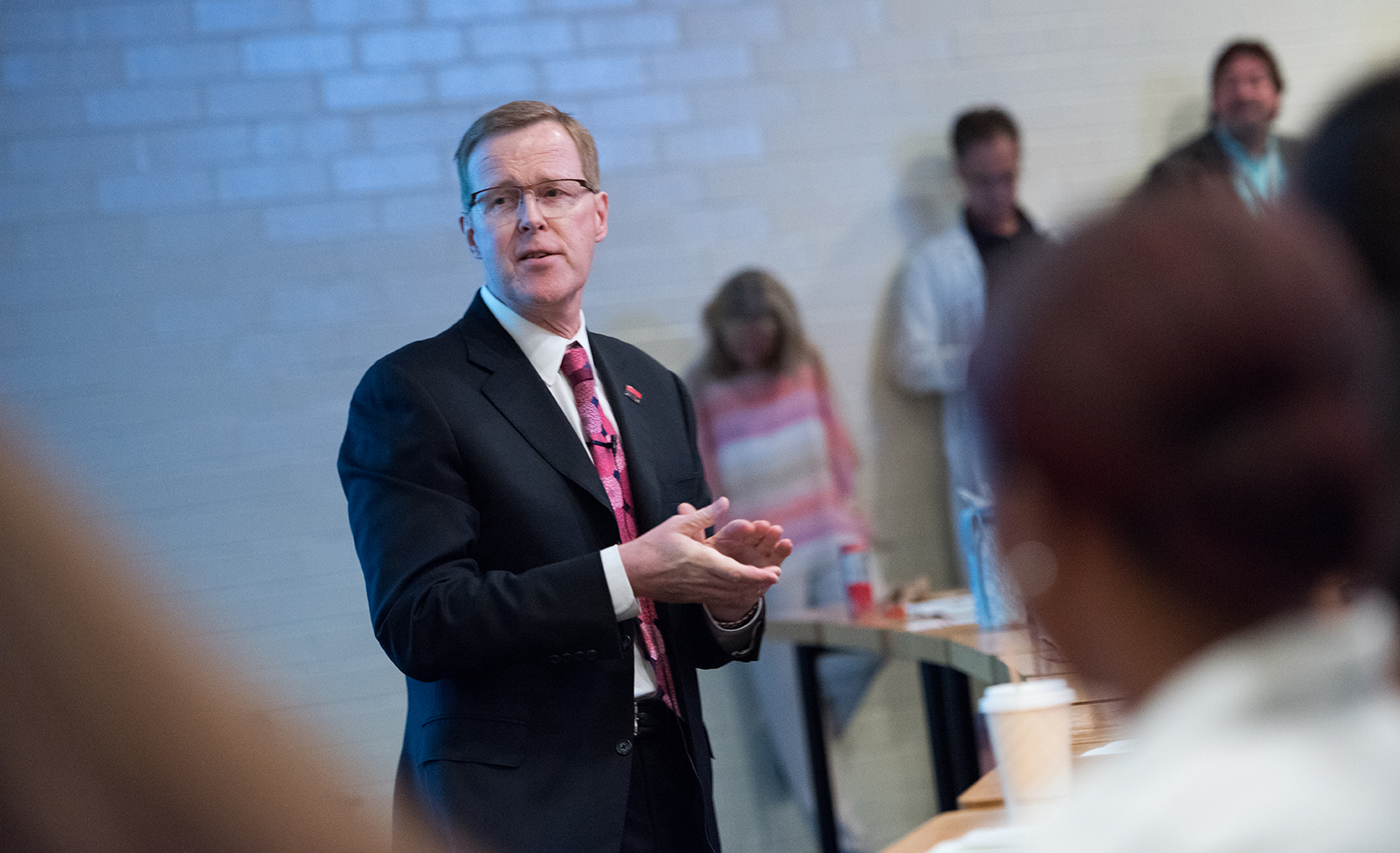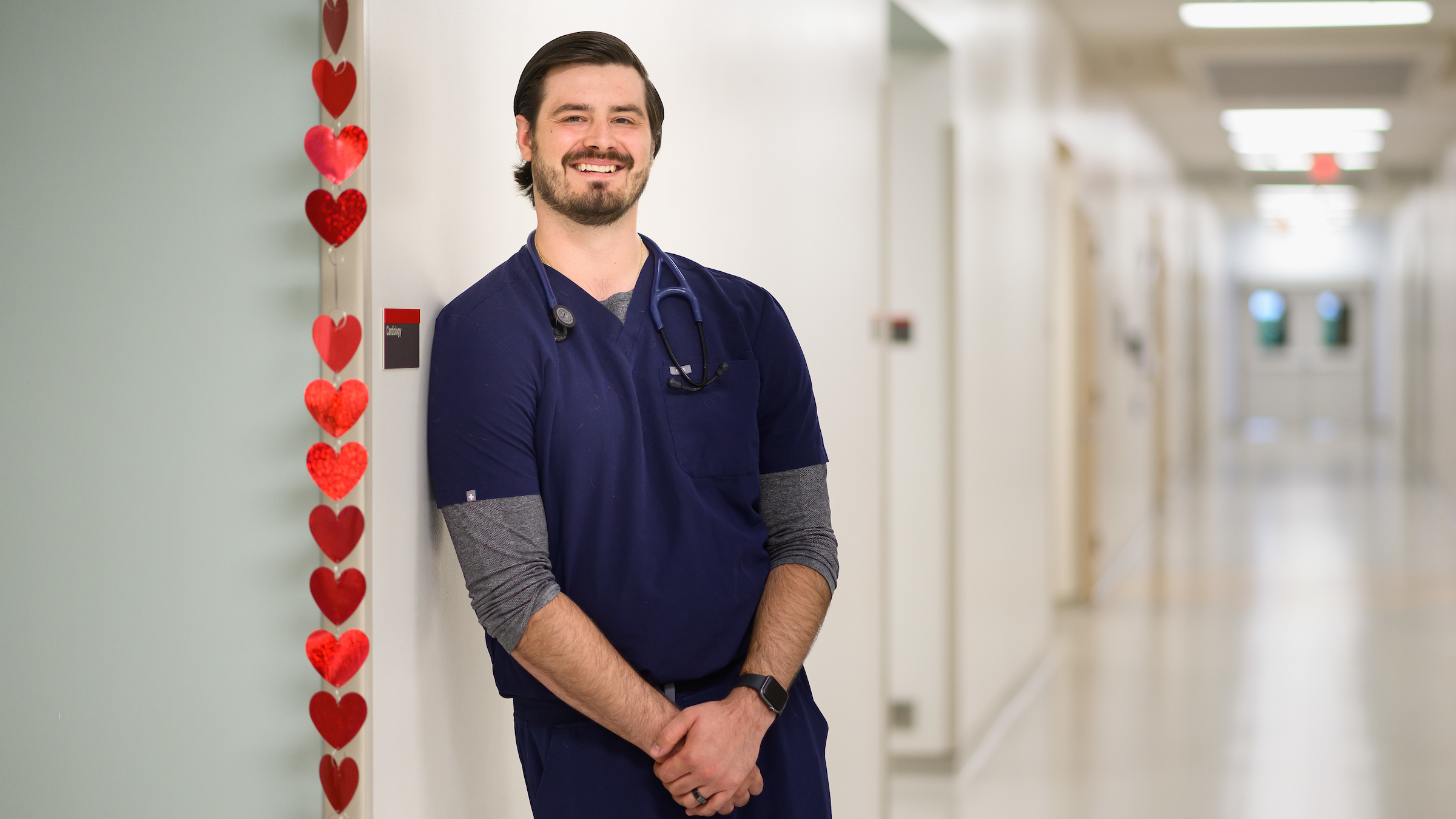From Farm to Fork: The CVM Invests in the Future of Agriculture

The agricultural industry is big business in North Carolina and contributes some $78 billion to the state’s economy, accounts for more than 17 percent of the state’s income, and employs nearly one of every five North Carolinians.
Animal agriculture (swine, poultry, cattle and dairy) comprises six of the state’s top 12 commodity groups and generates more than $9 billion in income. The state ranks second in the nation in the production of hogs and pigs, second in poultry/ eggs, and second in turkeys.
Faculty members in the College of Veterinary Medicine’s Department of Population Health and Pathobiology are well aware of these statistics and the importance of animal agriculture to our state’s farm families and the North Carolina economy. Whether instructing students at our own unique, on-site Teaching Animal Unit and working farm, conducting leading research into antimicrobials, consulting with a poultry producers, or presenting at a national swine conference – the PHP faculty is focused on enhancing farm animal health and wellness through teaching, research, and service.
There is a growing societal interest in farm-to-fork food safety, concern over the creation of “superbugs” that are resistant to multiple antimicrobial drugs, as well as interest in the welfare of the food animals themselves. We welcome these conversations and recognize the importance of the questions raised. I agree with Dr. Paula Cray, head of our Department of Population Health and Pathobiology, who has said she believes while we have a safe food supply, we still need to do more to educate the public about what veterinarians do in treating animals and what producers do in raising them. Dr. Cray has a strong background in the relationship between agriculture and human health, with over 24 years working with the federal government in USDA-ARS and related food safety research.
Veterinarians have an essential role in protecting the world’s food supply by ensuring both pre- and post-harvest health of food animals such as beef, dairy cattle, poultry, and swine; by reviewing the safety of the food production process; and by working with public health officials to prevent the spread of potentially dangerous zoonotic diseases. These and other endeavors help maintain a safe and nutritious public food supply as well as support the economic health of critical food animal industries.
The NC State CVM is recognized as a leader in food animal veterinary education, research and industry engagement, and our faculty members address important food animal health issues on a regional and global level. We recognize the challenges that lay ahead due to the complex relationship between animal and human health, so we are developing comprehensive and comparative approaches to industry and economic issues. Our strategic goals include educational innovation for our instructors, enhancing interdisciplinary scholarship to keep our students in touch with the concerns of society at large as applies to our industry and public health and to continue creating and nurturing strategic partnerships to enhance local and global engagement in our industry. To achieve these goals we are actively recruiting faculty to add to our food animal team, with new positions in swine and poultry health, and population health.
As we look forward, this change in approach will help keep the producer and the consumer on the same page – healthy and consuming safe food. By preparing our students to not only treat animals, but to educate the public and the farmer, we are preparing them to make a significant difference in agriculture’s effect on our world’s health, how farmers are perceived by their actions and how taking a cross-species approach to animal and public health helps keep our industry healthy and in motion.
All the best,
D. Paul Lunn, BVSc, MS, PhD MRCVS, Dip. ACVIM
Dean, College of Veterinary Medicine


